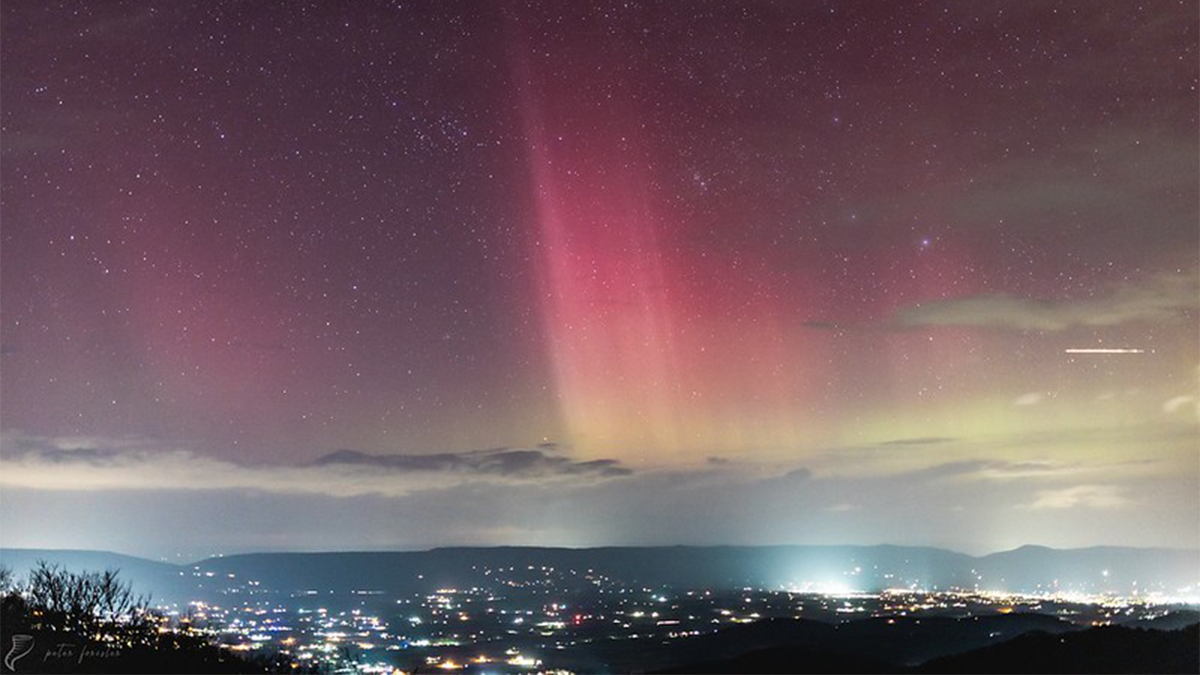Lawmakers unanimously supported a resolution that encouraged Virginians to “ponder the cosmic eons beyond” and consider the impact of increased light pollution.
Del. David Reid, D-Loudoun, introduced House Joint Resolution 74 to designate the week of the new moon in April as International Dark Sky Week. Gov. Glenn Youngkin issued a proclamation the past two years in observance of the week, but it will now have official designation and be placed on the General Assembly website.
This story was reported and written by our media partner Capital News Service
The resolution sheds light on a dark sky movement that values darkness to appreciate “the beauty of the night sky above” and explores solutions to minimize light pollution.
“This first part is about awareness,” Reid said, with hopes people will think about the kinds of lighting used in their homes or businesses.
Reid was inspired by an avid photographer friend to present the resolution to the General Assembly, in addition to his own self-described amateur forays into astronomy.
“It’s again, awe inspiring when you can look through the telescope and see these things with your own eyes,” Reid said.
He hopes that clearer night skies may encourage children to engage with science, technology and engineering programs at a young age.
The DarkSky International organization defines light pollution as the human-made alteration of natural levels of light. This can occur from the harsh exterior lighting of buildings, parking lots and street lamps.
Light pollution harms migratory birds and other local wildlife in addition to blocking out the night sky, according to the organization.
The annual cost of wasted energy in the U.S. is estimated to be roughly $3 billion, according to the resolution and previous proclamations from the governor’s office.
The first lighting ordinance was passed in Arizona in 1958. The DarkSky organization began advocacy in 1988 to educate and preserve starry views throughout the world, according to its website.
The history of Dark Sky Week is rooted in a Virginia suburb and North Carolina beach. Midlothian native Jennifer Barlow realized as a teen that her view of the stars was not the same in her backyard as it was at the beach, according to a University of Virginia profile.
Barlow’s mission to “spread the wonders of the skies in their full beauty” reached a worldwide audience and became the inspiration for International Dark Sky Week, she told Sky and Telescope in 2006.
The celebratory week was first observed in April 2003. International Dark Sky Week will occur from April 2-8 this year, according to DarkSky.
Virginia describes itself as the home of “some of the best stargazing on the East Coast.” And there are several renowned observatories and parks, according to the resolution.
James River, Natural Bridge, Sky Meadows and Staunton River state parks are officially designated as Dark Sky parks. This means that these parks follow strict lighting ordinances to prevent light pollution and obscuration of the night sky.
George Spagna is the former director of Randolph-Macon College’s Keeble Observatory and former mayor of Ashland, a town about 20 miles north of Richmond.
“We have grown into a nation of people who are afraid of the dark,” Spagna said. “The problem with being afraid of the dark is you can’t see the wonders of the universe around you.”
Randolph-Macon College has offered astronomy courses since their relocation to Ashland in 1868. Star-gazing classes were on the catalog as early as 1872, according to Spagna.
Spagna worked with Ashland to meet light pollution standards established by the International Dark Sky Association. He explained that lighting can often be an afterthought for developers, and an official Dark Sky week could help make the public more cognizant of light pollution.
Staunton River State Park was the first Virginia park in 2015 to be designated by the international organization, and the 25th in the world.
Chapel Hill Astronomical and Observational Society hosts the biannual Staunton River Star Party at the park, with the spring event held this year March 4-10. Astronomers camp for the week and aim equipment toward the dark sky.
Public day for the star party will be held March 8, from 8 p.m. to 10 p.m, for those who wish to observe the “transitive nightfall of diamonds.”
Capital News Service is a program of Virginia Commonwealth University's Robertson School of Media and Culture. Students in the program provide state government coverage for a variety of media outlets in Virginia.





